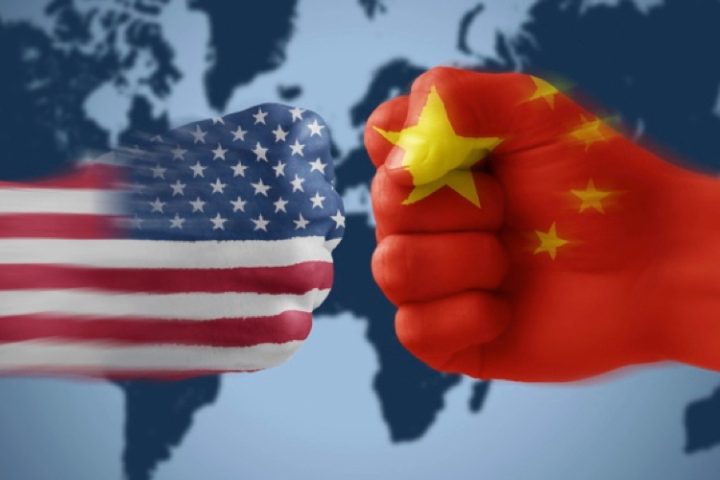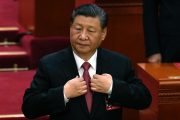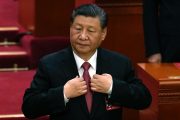
On September 30, the China Task Force (CTF), a committee formed in early May consisting of 15 House Republicans, released its findings on how the United States should respond to an increasingly belligerent Chinese Communist Party (CCP). The report lays out a “blueprint for bipartisan action Congress and the Administration can take now to address the greatest national and economic security challenge of this generation.”
The CTF’s report presents 82 key findings. It gives 430 recommendations on how to react to “CCP behaviors that are most threatening to the American way of life — humanitarian atrocities, the erosion of democracy, territorial aggression, and theft of American intellectual property (IP).”
The findings are more than alarming, including:
- The CCP’s massive subsidies and state-directed predatory industrial policies have undermined critical supply chains, and in some cases, hollowed-out essential industries of the US and other countries.
- The CCP is spending hundreds of billions of dollars to dominate all semiconductor supply chain segments, including the fabrication of chips. Unless the US takes bolder action, the US may lose its ability to make semiconductor chips to the People’s Republic of China forever.
- During the COVID-19 pandemic, a new light has been shone on specific countries’ over-reliance, specifically the PRC, for our drug supply chain. Our dependence on certain countries — both for raw materials and manufacturing assistance — creates a serious health and security vulnerability for our country.
- The CCP is rapidly developing a military force capable of winning regional conflicts and is expanding military footprint globally.
- The threat the CCP poses to US critical infrastructure is real and growing. Lifeline sectors, including defense, energy (electricity, oil, natural gas, nuclear), financial services, transportation, telecommunications, and water are critical to national security.
- The CCP seeks to overtake the US as the global leader in technology through IP theft, industrial espionage, and other hostile acts conducted through official state actions as well as unofficial/covert state actions and policies that incentivize malign activity by non-state actors in the PRC
- Human rights are a dimension of the free world’s competition with the CCP, no less than security or economics. At home, the CCP is the world’s most accomplished human rights abuser, depriving 1.4 billion human beings of their fundamental rights. Internationally, the CCP is advancing its revisionist definition of human rights that substitutes collective material advancement for individual liberties. The CCP’s threat to human rights extends far beyond its domestic borders, threatening the US’s national security and its like-minded partners. The CCP is perfecting, modeling, and distributing a repression system that empowers authoritarian regimes like itself and degrades the values on which democracy is built.
The recommendations include bringing key industries, such as medicine production and components, medical supply chains, rare-earth minerals, and semiconductor production, back to the United States; strengthening and upgrading our military; increasing cooperation with our allies; requiring more transparency in sectors already heavily influenced by the CCP, such as higher education, financial, and entertainment; imposing sanctions to punish the regime’s human-rights abuses; and working to reduce CCP influence in world bodies such as the WHO and WTO.
Highlighted in the report is the fact that it was the willingness of the administrations following Reagan’s to appease and ignore the CCP’s human-rights violations and economic and military aggression that got us where we are today.
“Ignoring the CCP’s own stated goals and actions, US leaders justified this decision on the faulty assumptions and empty promises that greater levels of trade and investment between our two countries could induce the CCP to liberalize its political system and economy,” the report said.
While 60 percent of the recommendations were bipartisan, and Congress already passed some of them, the CTF illustrates a stark example of the political divide in this country. While the task force was originally intended to be a bipartisan effort, the Democrats withdrew from it the day before creation of the committee with no explanation. Simultaneously, the Trump administration has taken an increasingly tougher stance against the CCP, its human rights violations in Hong Kong and against Uyghur Muslims in the Xinjiang region, and its handling of the Chinese Virus (COVID-19).
The Chairman of the CTF, Representative Kevin McCarthy (R-Calif.), when asked about his thoughts on a Biden administration following through with the recommendations of the committee, said, “I would hope Joe Biden would read this report, but that would be a real concern to me of why switching administrations would be wrong.”
McCarthy has every reason to be apprehensive about Biden’s and the Democrats’ willingness to stand against China. Consider the New York Post’s exposé of Biden’s business ties with the CCP and the establishment treating Trump as the real enemy and that China, not the United States, is gearing up to lead the world in the 21st century.



